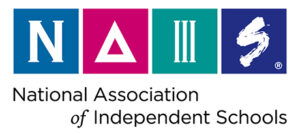Math at Friends School and a cool new resource from Stanford University
By Erika Norman, Friends School math teacher
At Friends School, we help students become capable and efficient mathematicians with a growth mindset about math learning. Our students are curious about the patterns and intricacies of math, and yes, even see the beauty in the subject. At Friends, math is much more than just computation. As we learn more about the brain science behind how children and adults learn math, we as teachers and parents can better support our young mathematicians.
Last spring, I attended Dr. Jo Boaler’s Mathematical Mindset workshop at Stanford University and returned with a wealth of knowledge and practical applications for our classrooms. Dr. Boaler is one of the leading researchers in math education, an award-winning author and educator, professor of Mathematics Education at Stanford University, and the faculty director of youcubed. She was recently named by BBC as one of the eight educators who “are challenging the future of education”, and helping teachers, parents, and students relate to mathematics. Not only have we been fortunate enough to apply many of Dr. Boaler’s strategies to our existing math curriculum, many of our classrooms also utilize Stanford’s website www.youcubed.org which supplies numerous math resources for parents and teachers alike. Please check it out when you have a minute.
What does a growth mindset around math look like at Friends and how is Stanford’s youcubed influencing how we teach math? It means being open to the curiosity of math rather than seeing it just as computation. Through lessons on youcubed during the first few weeks of this school year, students in our upper grades have created charts that help them to remember that mistakes are important, see the benefit of using visual models, understand that speed is not their focus but deep thinking is, and constantly remind themselves that brains grow and change with effort and quality experiences.
Two TedTalks by Dr. Boaler outline the brain science which shows the many ways our brains process math, the importance of visual learning, and the importance of self-belief to our learning experiences. We hope you will view these presentations and join us in demystifying the myth that there are “math people” and “not math people”.
“Believe in Your Maths Potential”(for older students)
“How you can be good at math, and other surprising facts about learning” (for younger students)
If you are interested in learning more about Friends math program, we invite you to attend our math nights, reach out to your classroom teacher or to me or Michelle in our middle school, and . . . continue to create a growth mindset around math for yourself and your children.
Erika





